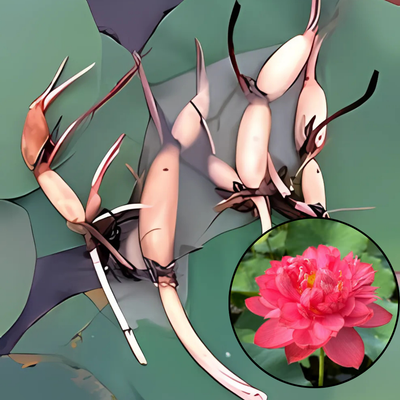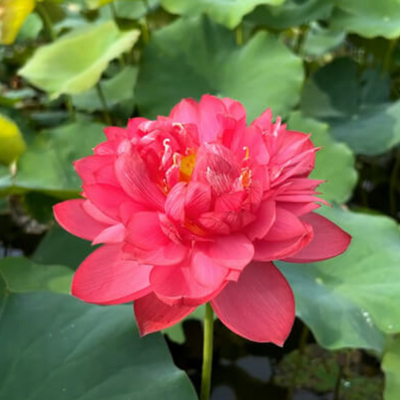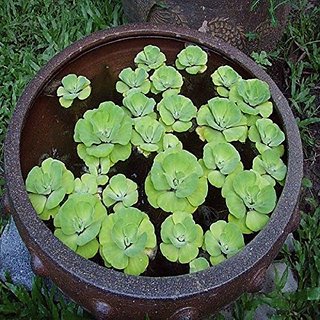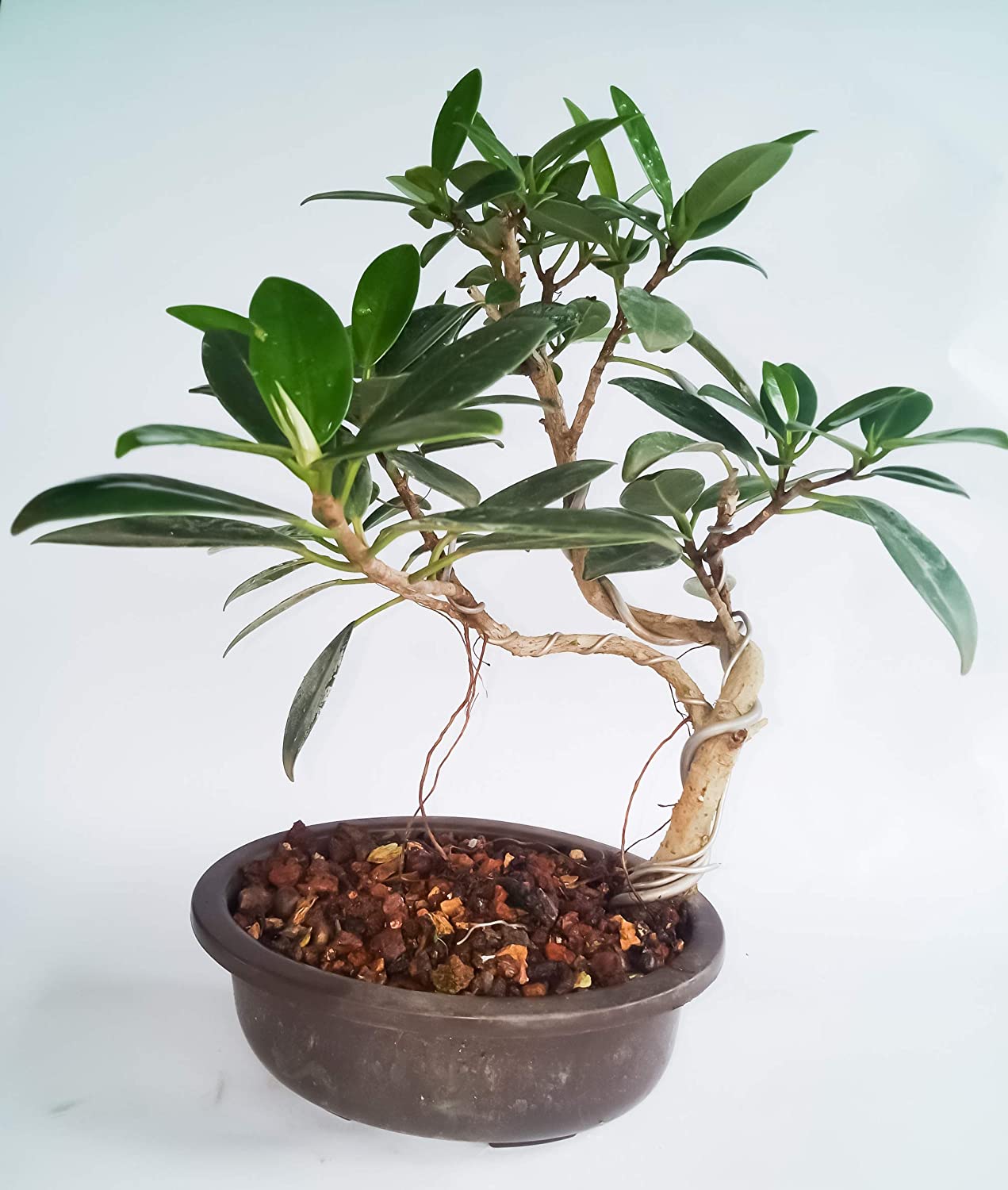
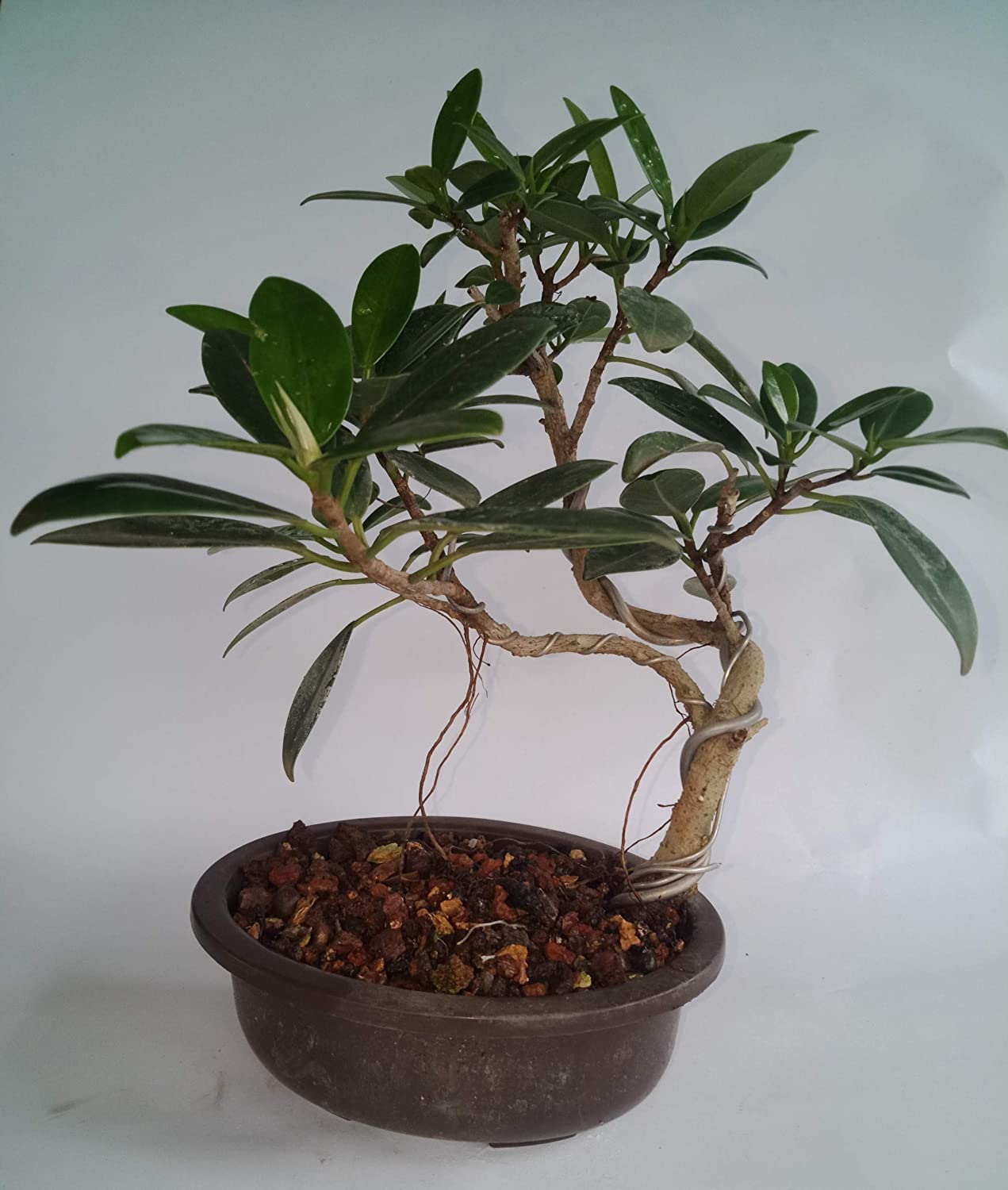
Bonsai Ficus Long Island Tree with Pot (Live Plant)
Guaranteed Safe Checkout
Green Paradise Offers Beautiful Bonsai
Ficus Long Island Plant
About Bonsai Ficus Long Island Plant
The Bonsai Ficus Long Island(Chinese banyan) is a species of fig tree native to East Asia, including China, Taiwan, and Malaysia. It belongs to the family Moraceae and is a popular tree in various parts of the world due to its attractive appearance and ease of cultivation.
Here are some key characteristics and information about the Bonsai Ficus Long Island plant:
Appearance:
- The Bonsai Ficus Long Island is a medium-sized evergreen tree that can reach heights of up to (1-1.5 feet).
- It has a dense, spreading crown with multiple trunks and branches that form a tangled, intricate structure.
- The Bonsai Ficus Long Island produces aerial roots that grow downward from the branches, giving it a unique appearance.
Leaves:
- The leaves of the Bonsai Ficus Long Island are glossy, oval-shaped, and have a leathery texture.
- On the outside, they are a dark green color, and on the inside, a lighter green color.
- The leaves are usually (1-2 inches) long and arranged alternately along the branches.
Fruits:
- The Bonsai Ficus Long Island produces small, round fig-like fruits called syconia.
- These fruits are typically less than 1 centimeter in diameter and start out green but turn purplish-black when ripe.
- However, the fruits are generally not considered edible for humans.
Environmental adaptability:
- Bonsai Ficus Long Island are known for their adaptability to various growing conditions.
- They can survive in a variety of soil types, such as sandy, loamy, and clay.
- They also thrive in both full sunlight and partial shade, making them suitable for different locations.
Cultural significance:
- In Chinese culture, the Bonsai Ficus Long Island tree holds symbolic meaning and is associated with wisdom, strength, and longevity.
- It is often planted near temples, ancestral halls, or sacred sites as a symbol of good fortune and spiritual protection.
Ecological importance:
- The Bonsai Ficus Long Island provides significant ecological benefits.
- Its dense crown offers shade, making it a popular choice for urban landscaping and park plantings.
- The tree also acts as a habitat for various birds, insects, and small mammals.
- The aerial roots create a unique microhabitat and help stabilize the tree's structure.
Bonsai cultivation:
- Bonsai Ficus Long Island are frequently used for bonsai cultivation due to their hardiness and attractive growth habits.
- The aerial roots can be trained and shaped, adding to the aesthetic appeal of the bonsai tree.
It's important to note that while the Bonsai Ficus Long Island is widely cultivated and appreciated, it can also become invasive in certain regions with suitable conditions, displacing native plant species. Therefore, its cultivation and management should be carefully considered to prevent ecological disruptions.
How To Grow Ficus Bonsai Long Island
Growing a Ficus bonsai on Long Island requires attention to the specific needs of the plant and adapting to the local climate.
Here are some general guidelines to help you grow a Ficus bonsai successfully in that region:
Choose the right Ficus species:
- Ficus macrocarpa, commonly known as the Chinese banyan or ginseng ficus, is a popular choice for bonsai due to its adaptability and small leaf size.
- It is resilient to a range of problems.
Select a suitable container:
- Bonsai containers should have good drainage holes and be shallow to restrict root growth.
- Choose a container that complements the aesthetic of the bonsai.
Provide proper lighting:
- Ficus bonsai thrive in bright, indirect light. Place your bonsai near a south-facing window or use fluorescent grow lights if natural light is insufficient.
- Avoid placing it in direct sunlight, especially during the hot summer months.
Maintain proper temperature and humidity:
- Ficus bonsai prefer average room temperatures between 60°F and 75°F (15°C to 24°C).
- They enjoy moderate to high humidity levels as well.
- To increase humidity, you can use a humidity tray filled with water or mist the foliage regularly.
Watering:
- Water your Ficus bonsai thoroughly when the topsoil starts to feel slightly dry.
- Avoid overwatering, as Ficus species are susceptible to root rot. By sticking your finger about an inch deep into the soil, you can measure the soil's moisture content.
- Watering should be done if that depth feels dry.
- Ensure proper drainage by using well-draining bonsai soil.
Fertilizing:
- Fertilize your Ficus bonsai every two to four weeks during the growing season (spring and summer).
- Use a balanced, water-soluble fertilizer specifically formulated for bonsai.
- Follow the instructions on the package for proper dilution and application.
Pruning and shaping:
- Regular pruning is necessary to maintain the desired shape and size of your bonsai.
- Use sharp bonsai shears to prune back new growth, keeping in mind the overall design and aesthetic.
- Prune during the active growing season to encourage branching and development.
Repotting:
- Ficus bonsai should be repotted every two to three years.
- Repotting helps refresh the soil, trim back roots, and encourage healthy growth.
- The best time to repot is during early spring, just before new growth begins.
- Use a well-draining bonsai soil mix and trim back about 20-30% of the root mass.
Control of pests:
- Be on the lookout for typical pests like aphids, scale insects, and spider mites.
- If you notice any signs of infestation, promptly treat your bonsai using appropriate organic or chemical insecticides, following the manufacturer's instructions.
Remember that bonsai care requires patience and dedication. It's essential to study and understand the specific needs of your Ficus bonsai to provide the best growing conditions. Regular observation and adjustments will help you maintain a healthy and beautiful bonsai tree.

